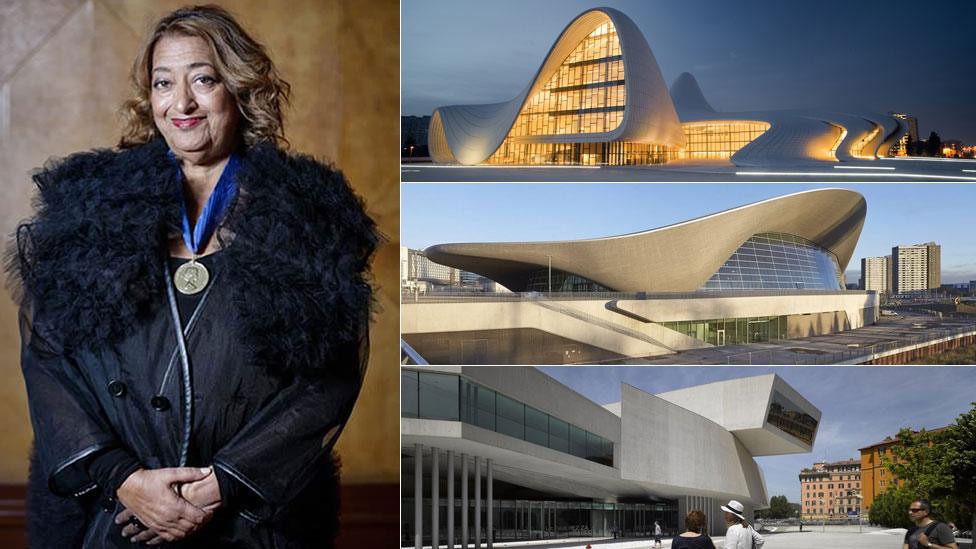Dame Zaha Hadid receives Riba Gold Medal for architecture
- Published

Dame Zaha with her medal and three of her designs: the Heydar Aliyev Centre in Baku (top), the Aquatics Centre in London (middle) and the Maxxi Museum in Rome
Dame Zaha Hadid has received the Royal Gold Medal for architecture from the Royal Institute of British Architects in recognition of her body of work.
The Iraqi-born architect said she was "very proud... to be the first woman to receive the honour in her own right."
Dame Zaha's designs include the Heydar Aliyev Centre in Baku, the Aquatics Centre constructed for the 2012 London Olympics and the Maxxi Museum in Rome.
She was made a dame in 2012 and has twice won the Riba Stirling Prize.
Hadid was personally approved by the Queen for the medal, an accolade whose previous recipients include Frank Lloyd Wright, Frank Gehry and Lord Norman Foster.
The two previous female honourees - Ray Kaiser Eames and Patricia "Patty" Hopkins - received the medal in tandem with their husbands, Charles Eames and Sir Michael Hopkins.
"We now see more established female architects all the time," said Dame Zaha as she accepted the medal on Wednesday. "That doesn't mean it's easy.
"Sometimes the challenges are immense. There has been tremendous change over recent years and we will continue this progress."
Dame Zaha's futuristic stadium design for the 2020 Tokyo Olympics was scrapped last year
Professor Sir Peter Cook, a member of the Archigram group who received the medal in 2002, called Dame Zaha a "heroine" who was larger than life [and] bold as brass".
"How lucky we are to have her in London," he said as he presented Dame Zaha with the medal.
The architect left Iraq at 17 to study in the UK and set up her own practice in London in 1979.
Dame Zaha's other creations include the Serpentine Sackler Gallery in London, the Riverside Museum at Glasgow's Museum of Transport, and Guangzhou Opera House in China.
Last year, however, the Japanese government scrapped plans to build the futuristic-looking stadium she designed for the 2020 Olympics in Tokyo, opting instead for a scaled-down, less costly design.
- Published24 September 2015
- Published31 March 2016